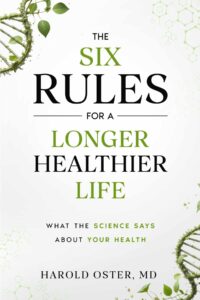How To Know When to Retire

How To Know When to Retire
I left my medical practice of 19 years last week. I’ve had three parties celebrating my retirement, but I don’t call it retirement. Retirement used to mean quitting a job of 35 years, then sitting around and traveling for a few years. You lived off social security, perhaps a pension, and the money you had saved. I intend to be productive and do meaningful things.
I didn’t quit on a whim. I thought it through carefully. I don’t plan to join another practice or work nine to five in an office. I have other things to do. I hope to write, read, learn, travel, and work with my son on computer-related projects. Is that retirement?
I may make some money here or there, but not at the level I earned at Allina Health. I’m fortunate that my wife is a physician, so money isn’t an issue. But in a few years, she may leave her practice and join me in my non-retirement.
My daily life will change starting this week. I will no longer go to the office, see patients, come home, and log into the computer to handle calls. I will do other things I find meaningful and productive. I’ll have more leisure time, but I don’t intend to sit around surfing the internet and streaming TV shows. If you find these activities meaningful, do them, but I have other things to do.
Is what I plan to do a retirement? The only material difference between my office job and my new life will be the amount of money I make. I will have a new set of benefits and downsides to my life. Our son has a good job but rarely goes to an office. He works on his computer at home or in a coffee shop. In my new life, I may join him and do my work on my computer. The only difference between us will be that he will make more money in the coffee shop than I will. The benefits of his day will be money and hopefully meaning–for me, only meaning. Many people make more than he does at their jobs, and some make about what I’ll make with my projects. Why am I retired, and the others aren’t? I may sell a thousand copies of a book while Michael Connelly sells a million. Why is he an author while I am a retiree?
It’s all made up. The real question is not, “How to know when to retire,” It’s “Should you continue doing what you are doing?” Every activity I do, I think about the benefits and the downsides. I don’t go to certain places on vacation because, for me, the downsides of crime or infections outweigh the benefits. The same is true with work. I decided that even with the money, the upsides of my job didn’t outweigh the downsides, so I “retired.” Early in my career, when I needed the money to buy a house and pay the bills, the reverse was true.
If you hate your job (a very subjective concept), then find a way to get a different one. If the money is less, decide if the benefits outweigh the negatives. If so, change jobs. If there is no better job, then accept that as a positive for staying in your current job. All choices are like that. Hopefully, at some point, you will be fortunate enough to live a meaningful life without needing a salary. But even then, before you “retire,” you need some benefits of leaving your job. Otherwise, don’t do it.
How to know when to retire is a straightforward question. Think of money as just one of the many benefits of your job. Money is a big upside early in a career because you may have a car payment, a mortgage, and kids to take care of. Later, if your mortgage and cars are paid off, and your kids are on their own, money is less important, and you can concentrate on other things. Sadly, many retirees did not understand the concept when they left their jobs, assuming that a life of leisure is wonderful, even with nothing meaningful to do.

